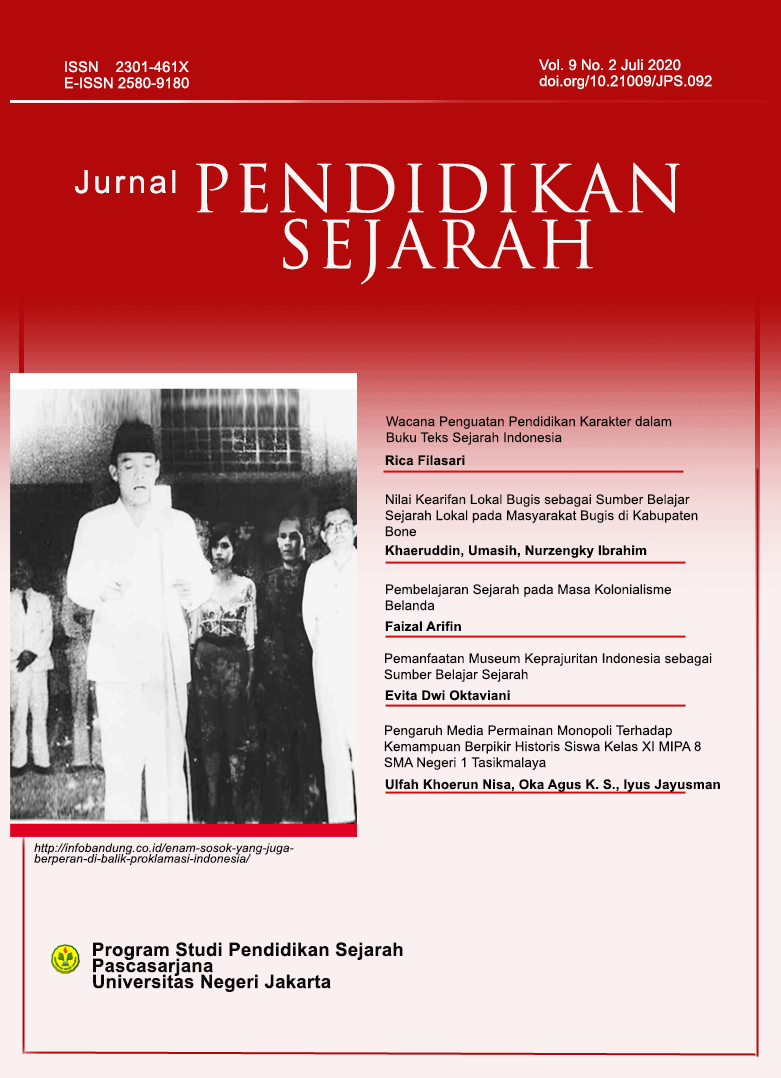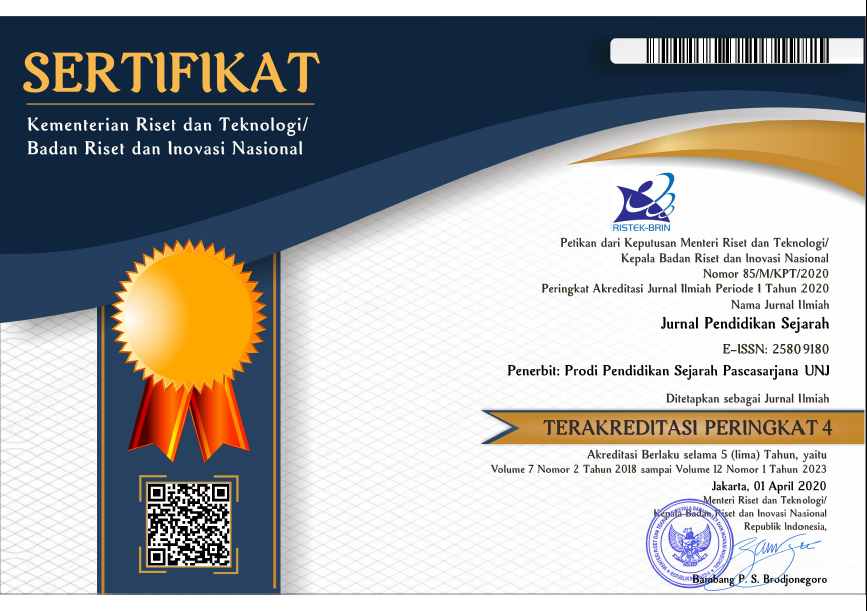Pembelajaran Sejarah pada Masa Kolonialisme Belanda
DOI:
https://doi.org/10.21009/JPS.092.03Keywords:
History of Historical Learning, Dutch Colonialism, Dutch Imperialism, Dutch East Indies, Ethical PoliticsAbstract
This article aims to examine the development of historical learning during the Dutch Colonialism period, especially after the implementation of the Ethical Policy. In the field of education, indigenous elite students have access to Western (Dutch) education with the Colonial-Centrism curriculum, including history lessons. Historical learning in the early twentieth century characterized by learning materials oriented towards European superiority, Dutch legitimacy over Colonialism in the Dutch East Indies, delegitimation of rulers (kings/sultans) in Nusantara, and the indoctrination of colonized nations to accept Colonialism. This research used the historical method, namely heuristics, criticism, interpretation, and historiography. The results of this research showed us that historical learning during the Colonialism period was oriented to legitimize the political power of Dutch Colonialism and indoctrination for indigenous elites to accept Colonialism. That is because historical learning has a strategic role in influencing elite indigenous students to receive and support colonial domination and structure in society. On the other perspectives, history lessons produced indigenous students that increase the ability of critical thinking about Colonialism and Western Imperialism.
Downloads
Published
How to Cite
Issue
Section
License
Copyright
Jurnal Pendidikan Sejarah work is licensed under a Creative Commons Attribution 4.0 International License.







